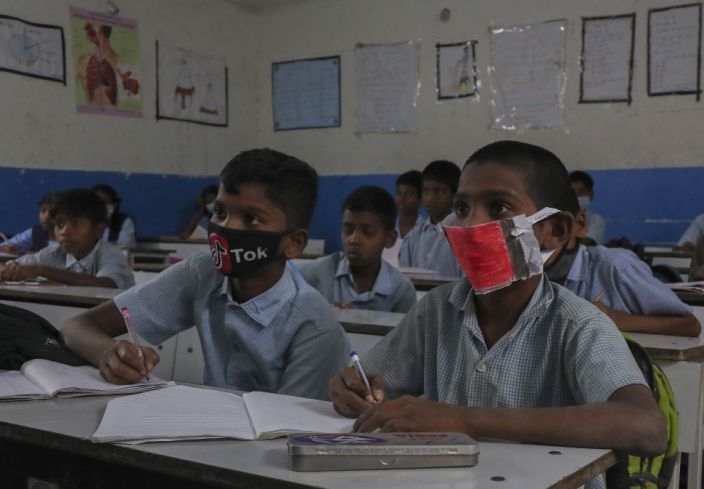KATHMANDU: The World Food Programme (WFP) and UNICEF are urging national governments to prevent devastating nutrition and health consequences for the 370 million children missing out on school meals amid school closures as the COVID-19 crisis pushes up levels of hunger among the global poor.
WFP Executive Director David Beasley said that for millions of children around the world, the meal they get at school is the only meal they get in a day.
He added, “Without it, they go hungry, they risk falling sick, dropping out of school and losing their best chance of escaping poverty. We must act now to prevent health pandemic from becoming a hunger catastrophe.”
School meals are especially critical for girls. In many poor countries, the promise of a meal can be enough to make struggling parents send their daughter to school, allowing her to escape heavy domestic duties or early marriage.
Similarly, Henrietta Fore, UNICEF Executive Director said that school is so much more than a place of learning.
She added, “For many children, it is a lifeline to safety, health services, and nutrition. Unless we act now – by scaling up lifesaving services for the most vulnerable children – the devastating fallout caused by COVID-19 will be felt for decades to come.”
Alongside school meal programs, children in poor countries often benefit from health and nutrition services – such as vaccinations, deworming and iron supplementation – delivered through their schools.
In 68 countries, governments and WFP are providing children with take-home rations, vouchers or cash transfers as an alternative to school meals.
Under the partnership, WFP and UNICEF will assist governments in the coming months to ensure that when schools reopen returning children benefit from school meals and health and nutrition programs.
To support this work – which will initially focus on 30 low-income or fragile countries to support 10 million children – UNICEF and WFP are appealing for US$ 600 million.
(with inputs from Agencies)









Comment